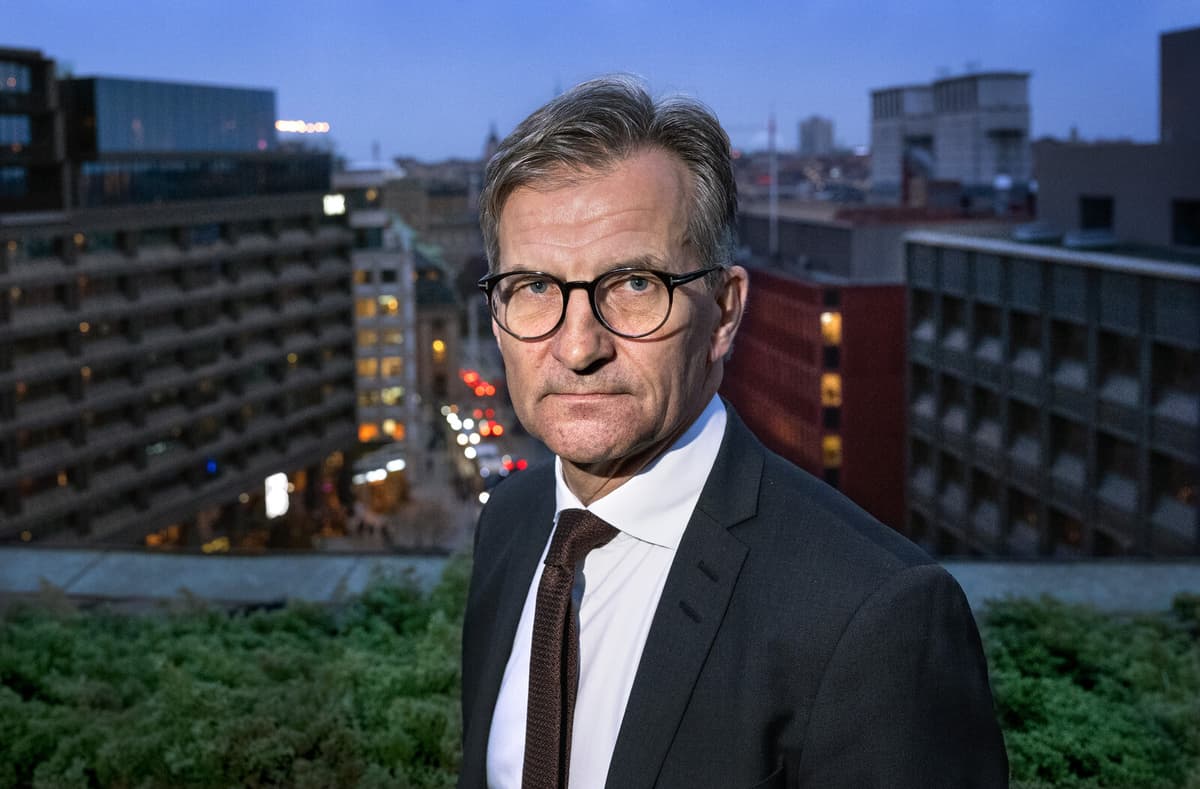Erik Thedéen took office in January 2023. At that time, inflation had just topped 10 percent. The world was shaken by pandemic effects and a historic energy crisis in the shadow of Russia's full-scale attack on neighboring Ukraine.
The situation has hardly calmed down. On the contrary, with a violent development in the Middle East and since November, a renewed threat of trade conflicts in the world escalating due to a new wave of high US tariffs when Donald Trump takes over the White House again.
"A pretty dangerous situation"
He points out, among other things, how trade conflicts are intertwined with security policy issues, such as Taiwan's future.
They kind of blend together in a rather unpleasant way. It can become a pretty dangerous situation.
It's very easy to say that it's "new times". But, in some sense, it's always uncertain. It's not like we haven't had crises before.
Thedéen reminds us of all the historical crises that have shaken the world after World War II: the Cold War, the Cuban Missile Crisis, the oil crisis, the bank collapse in Sweden in 1991, the 9/11 attack, the financial crisis in 2008, and so on.
Generally, economic policy is characterized by a striving for stability. But I think it's even more important to be able to handle new situations that arise and new crises. That's how it is. Crisis may be a normal state, which we should be able to handle.
The Swedish Central Bank has the task of ensuring that Sweden has a stable price development – with an inflation rate around 2 percent – and financial stability.
The challenges are to counteract setbacks if inflation takes off again or if disruptions such as trade wars cause trouble. The risks are many, according to Thedéen.
No AI-generated interest rate decisions
But other things are also happening. The headquarters on Brunkebergstorg in central Stockholm is being renovated. And the Swedish Central Bank's new strategic plan is being implemented.
It's about how we can use data better and work more with AI at the central bank. We've taken some steps in that direction and it's fun, says Thedéen.
And preparedness is a huge issue for us. It almost didn't exist 5-10 years ago and now it's huge, in everything we do, he adds.
AI-generated interest rate decisions are not something Thedéen sees ahead.
You have to evaluate everything that comes out of AI and I don't think everything can be done by AI. I hope not, at least.
Joakim Goksör/TT
Facts: Back to 2.50 percent
TT
When Erik Thedéen took office as Governor of the Swedish Central Bank in January 2023, the Swedish Central Bank's policy rate was at 2.50 percent. But it took a series of rapid hikes to 4.00 percent to get inflation under control.
This year, the Swedish Central Bank has made five cuts and returned to the level where Thedéen started, at 2.50 percent in the policy rate.
I've managed to both raise interest rates and lower them during two years. It's not that common, actually, he says.
According to the Swedish Central Bank's interest rate path, the rate can be lowered to 2.25 percent, likely during the first quarter of 2025 – but only if the forecasts hold.






